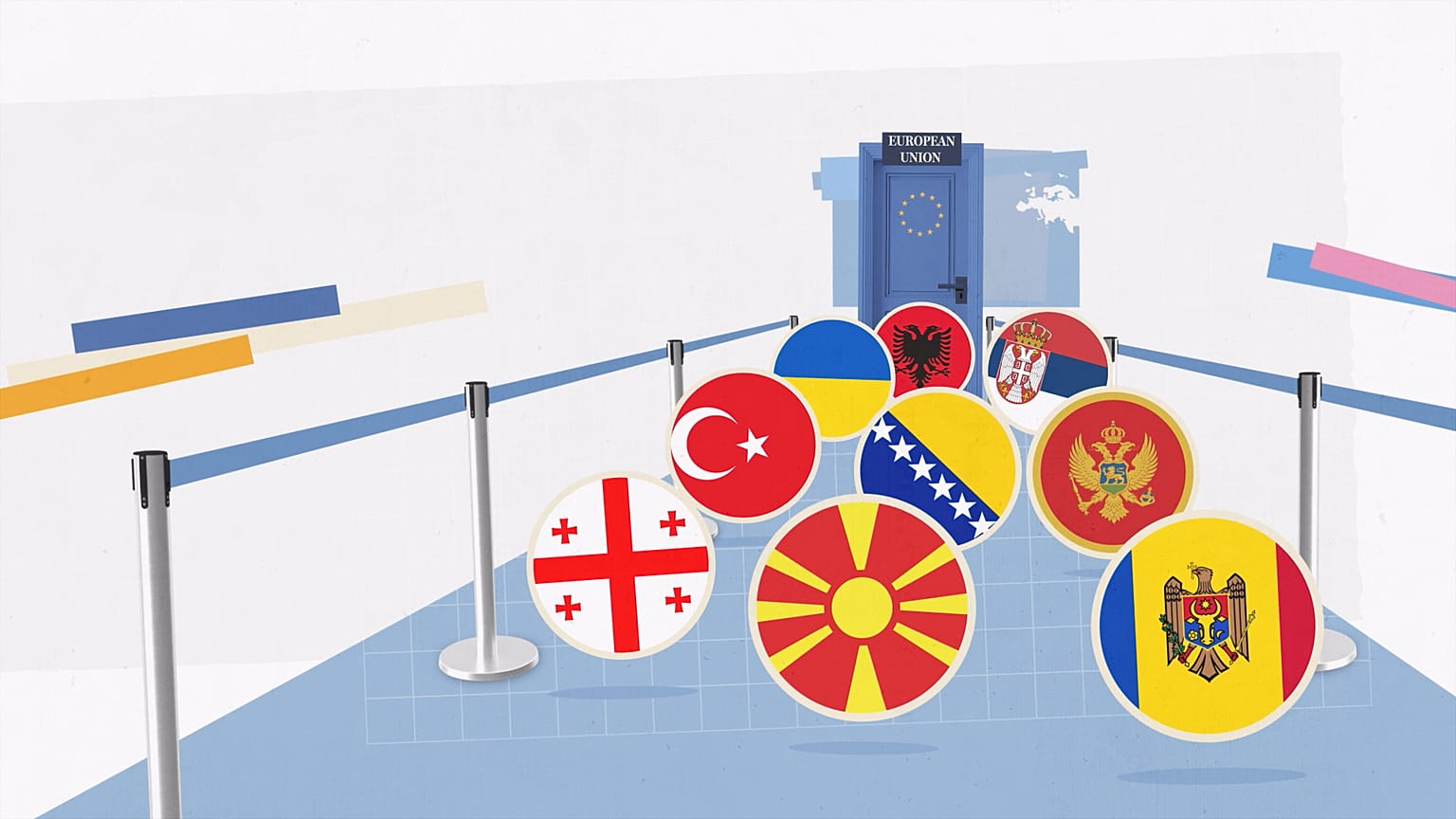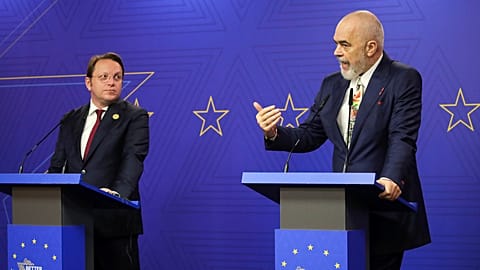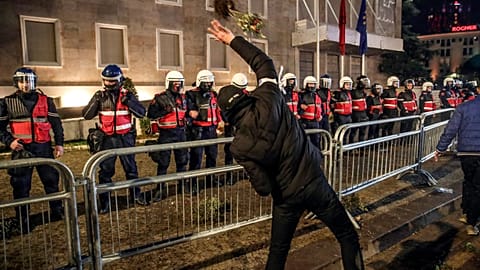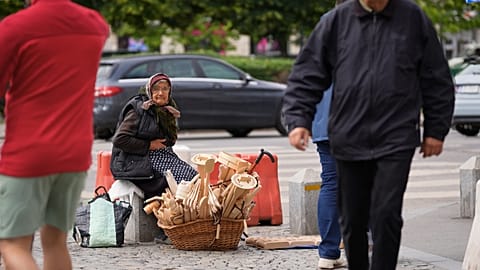Albania is seeking to join the EU after beginning accession talks in July 2022. But does Tirana meet all of the European Union's criteria?
Albania is one of nine countries with EU candidate status. While formal accession negotiations prepare candidate countries for eventual membership, EU voters are split over the issue of further EU enlargement.
 ADVERTISEMENT
ADVERTISEMENT
 ADVERTISEMENT
ADVERTISEMENT
The International Monetary Fund and the World Bank recently concluded that Albania has one of the most resilient economies in the Western Balkan region. Its public debt hit a 12-year-low in 2023, dropping below 60 per cent for the first time since 2011.
The EU’s latest progress report on Albania shows the country is on course to develop a functioning market economy and meets the level of preparation needed to cope with competitive pressures inside the bloc, but improvements are needed.
In addition, Albania made some progress on structural reforms in the energy market, transport infrastructure, the digitalisation of the economy and education outcomes. However, significant gaps at regional and European levels remain.
A helping hand
On 8 November 2023, the European Commission adopted the 2023 Enlargement Package and a Growth Plan to provide the Western Balkans with some of the benefits of EU membership.
According to the Commission, the Growth Plan has the potential to double the size of the Western Balkan economies within the next 10 years.
The EU is also the largest provider of financial assistance to Albania and is supporting the country's socioeconomic development and fundamental reforms with financial and technical assistance through the Instrument for Pre-accession Assistance (IPA).
Is Albania aligning itself with the EU's democratic values?
Albania has already taken significant steps to demonstrate its commitment to joining the EU. For instance, it continues to align with the EU's Common Foreign and Security Policy, a strong signal of the country's strategic choice to join the bloc. Despite that, accession can take years and ultimately depends on the approval of all member states and the European Parliament. According to the EU's latest progress report, here are some of the areas where Albania can improve.
Albania needs more stable political institutions - a strong political system needs to be able to withstand challenges and crises to ensure economic prosperity and development. While Albania's institutions have banded together to prepare for the next stages of the accession process, political polarisation remains a concern. Parliamentary proceedings in Albania are often disrupted in the plenary hall due to deep divisions between the government and the largest opposition party. Additionally, parliamentary activity was suspended during the 2023 local elections.
Upholding the rule of law - the rule of law ensures that all lawmakers, leaders and citizens alike are held accountable. According to the World Justice Project, a leading source for independent data on the rule of law, Albania ranked 91 out of 142 on the Rule of Law Index in 2023. The European Commission reported that more effort is needed in Albania's fight against organised crime, money laundering and high-level corruption.
Respecting human and minority rights - According to the European Commission, Albania has made some progress in recognising the rights of people with disabilities but more work is needed to protect the rights of minority groups.
To learn more about Albania's progress in the EU accession process, click here to watch the latest episode of Real Economy.

















